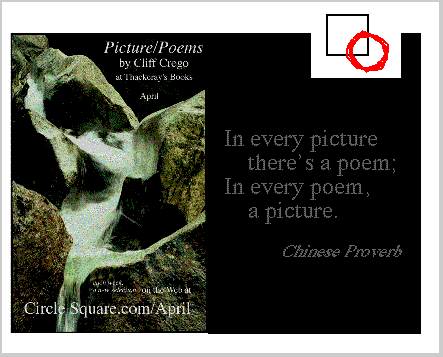
|
June 2001:
suggested link
The
Semantic
Web
An Internet report from
sciam.com, the website of
Scientific American
"By augmenting Web pages with data
targeted at computers and by adding
documents solely for computers, we will
transform the Web into the Semantic Web. "
|
Recent articles on the new Semantic Web
published in Scientifc American, both
in
the magazine and on their website at
sciam.com:
The
Semantic Web
A new form of Web content that is meaningful to computers
will unleash a revolution of new possibilities
by TIM BERNERS-LEE, JAMES HENDLER and ORA LASSILA
"To date, the World Wide Web has developed most rapidly as a medium
of documents for people rather than of information that can be manipulated
automatically. By augmenting Web pages with data targeted at computers
and by adding documents solely for computers, we will transform the Web
into the Semantic Web.
Computers will find the meaning of semantic data by following hyperlinks
to definitions of key terms and rules for reasoning about them logically.
The resulting infrastructure will spur the development of automated Web
services such as highly functional agents.
Ordinary users will compose Semantic Web pages and add new definitions
and rules using off-the-shelf software that will assist with semantic
markup."
Expressing Meaning
"The essential property of the World Wide Web is its universality.
The power of a
hypertext link is that "anything can link to anything." Web technology,
therefore,
must not discriminate between the scribbled draft and the polished performance,
between commercial and academic information, or among cultures, languages,
media
and so on. Information varies along many axes. One of these is the difference
between
information produced primarily for human consumption and that produced mainly
for
machines. At one end of the scale we have everything from the five-second
TV commercial
to poetry. At the other end we have databases, programs and sensor output.
To date, the
Web has developed most rapidly as a medium of documents for people rather
than for data
and information that can be processed automatically. The Semantic Web aims
to make up
for this.
Like the Internet, the Semantic Web will be as decentralized as possible.
Such Web-like
systems generate a lot of excitement at every level, from major corporation
to individual
user, and provide benefits that are hard or impossible to predict in advance.
Decentralization
requires compromises: the Web had to throw away the ideal of total consistency
of all of its
interconnections, ushering in the infamous message "Error 404: Not Found"
but allowing
unchecked exponential growth."
Agents
"The real power of the Semantic Web will be realized when people create many
programs
that collect Web content from diverse sources, process the information and
exchange the
results with other programs. The effectiveness of such software agents will
increase
exponentially as more machine-readable Web content and automated services
(including
other agents) become available."
Other related links
Glossary
for the Semantic Web
[from the Scientific American article]
"XML: eXtensible Markup Language. A markup language like HTML
that lets individuals define and use their own tags. XML has no built-in
mechanism to convey the meaning of the user's new tags to other users.
Resource: Web jargon for any entity. Includes Web pages, parts of
a
Web page, devices, people and more.
URI: Universal Resource Identifier. URLs are the most familiar type
of
URI. A URI defines or specifies an entity, not necessarily by naming its
location on the Web.
RDF: Resource Description Framework. A scheme for defining information
on the Web. RDF provides the technology for expressing the meaning of
terms and concepts in a form that computers can readily process. RDF can
use XML for its syntax and URIs to specify entities, concepts, properties
and relations.
Ontologies: Collections of statements written in a language such as
RDF
that define the relations between concepts and specify logical rules for
reasoning
about them. Computers will "understand" the meaning of semantic data on a
Web
page by following links to specified ontologies."
W3C: The World Wide Web
Consortium
http://www.w3.org/
Leading the Web to its Full Potential...
'The World Wide Web Consortium (W3C) develops interoperable technologies
(specifications, guidelines, software, and tools) to lead the Web to its
full potential
as a forum for information, commerce, communication, and collective
understanding.
On this page, you'll find W3C news as well as links to information about
W3C
technologies and getting involved in W3C. We encourage you to learn more
about
W3C."
Picture/Poem Link Archive
2001
| back to
Picture/Poems: Central
Display |
|
Map
|
TOC:
I-IV |
TOC:
V-VIII |
Image
Index |
Index |
Text Only
| Download
|
Newsletter
|
About
P/P |
About Cliff
Crego |
(IV.28.2001) Comments to
crego@picture-poems.com
